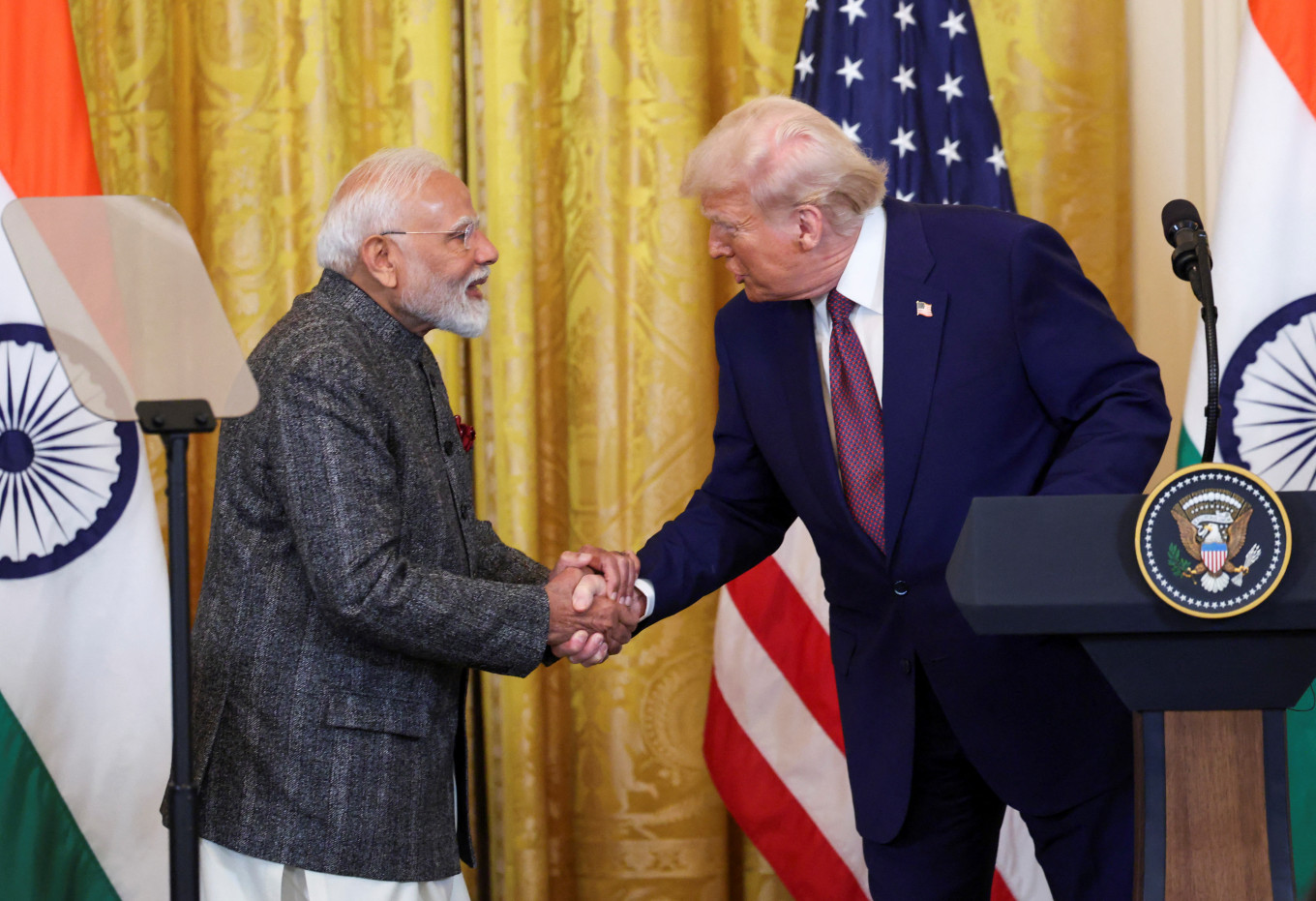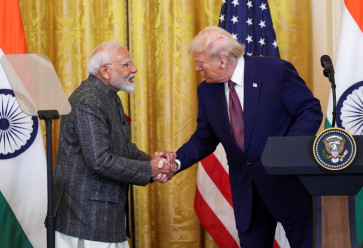Popular Reads
Top Results
Can't find what you're looking for?
View all search resultsPopular Reads
Top Results
Can't find what you're looking for?
View all search resultsTrump's tariffs and India's economic future
In the long term, Trump’s tariffs are likely to propel India to rethink its strategic priorities toward a decision on whether to pursue economic openness or retreat into protectionist autarky as it redefines its place in the world.
Change text size
Gift Premium Articles
to Anyone
U
nited States President Donald Trump’s decision to impose new tariffs on a wide range of imports from India, ostensibly a penalty for buying Russian oil, represents another shock to the international trading system, as well as a sharp reversal of good relations with Indian Prime Minister Narendra Modi.
These tariffs could disrupt the Indian economy, which has benefited immensely from global integration. But the greater risk lies in their potential to influence the country’s long-term strategic direction.
To be sure, several factors will mitigate the immediate impact of Trump’s tariffs. Despite being India’s largest trading partner, the United States is a distant country, and high transport costs have led India to diversify its trade relationships.
Moreover, international markets are not static, and Trump’s global tariff war will redirect trade flows and reconfigure supply chains all over the world. Indian exporters, like their counterparts in other countries, will invariably find new markets, though the transition costs implied by this shift are likely to be high.
Consider also that the new tariffs apply to roughly US$65 billion in annual merchandise exports from India. With the country’s total merchandise exports reaching around $441 billion in the last fiscal year, the affected goods constitute less than 15 percent of these trade flows. While not insignificant, this figure is unlikely to cripple India’s export economy.
A narrow focus on merchandise also overlooks the most dynamic component of India’s trade portfolio: services. With annual services exports now exceeding $380 billion and growing robustly, this sector is the true engine of India’s global economic ascent. Crucially, these exports, which include IT services, financial services, business process outsourcing and research and development, are not subject to tariffs.
As an added benefit, the policy uncertainty created by Trump’s tariff war could accelerate multinational firms’ diversification of operations away from America. India is well-positioned to capitalize on this shift, and I know from my own experience that Indian exporters of both goods and services have already begun to intensify their efforts to develop business links in OECD markets other than the US.



















